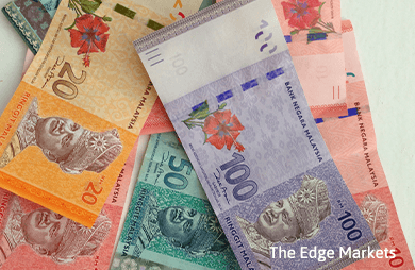
KUALA LUMPUR (Sept 8): The depreciation in the Malaysian ringgit is manageable for the sovereign (A3 positive), banks and rated corporates, although it indicates a weakening environment, according to Moody's Investors Service.
In a report today, Moody’s said it views the ringgit depreciation as a symptom of declining export revenues, capital outflows, and worsening investor sentiment toward Malaysia,"
Rahul Ghosh, a Moody's Vice President and Senior Research Analyst said there were negatively impacting key credit buffers such as the current account surplus, foreign reserve coverage, and economic growth trajectory."
Ghosh said the Malaysian ringgit had depreciated by approximately 25% against the US dollar in the past 12 months.
He said although Moody's expects its rated corporates—which had natural hedges and better flexibility despite external funding exposure— to weather the weaker ringgit, lower Brent crude and palm oil prices will weigh on commodity producers' cash generation and earnings.
Moody’s said the majority of market participants surveyed by the rating agency expect the ringgit and oil prices to stabilise; 44% expect the ringgit will remain range-bound between RM4.00-RM4.50 against the US dollar, and 62% expect Brent crude to average US$45-US$55 per barrel in the coming 12 months.
“Finally, the polling showed that market participants still view China's (Aa3 stable) growth slowdown as the largest risk for Malaysian banks, followed by ringgit weakness.
“From Moody's perspective, Malaysian banks' direct exposure to China is limited, but domestic asset quality may be pressured, given Malaysia's export exposure to the Mainland,” it said.
Moody’s in terms of foreign exchange vulnerability, foreign currency loans and foreign currency borrowings by Malaysian banks form a modest share of their overall balance sheets.